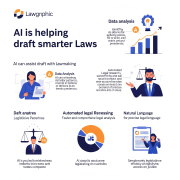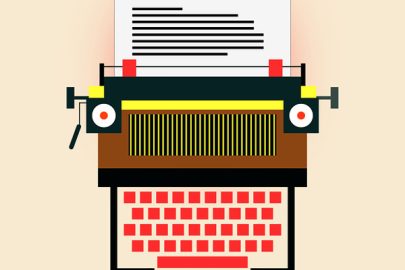How AI Is Helping Draft Smarter Laws
Artificial intelligence (AI) is fast changing legislators’ and governments’ operations. Using artificial intelligence to assist in creating better, more efficient legislation is among the most innovative ideas. AI techniques are increasingly indispensable in the legislative process, from examining current laws to projecting unexpected outcomes.
Artificial Intelligence’s Emergence in Legislative Drafting
 Drafting laws historically has been a labor-intensive process requiring thorough legal knowledge, exact terminology, and an awareness of how laws interact. By scanning hundreds of legal papers, spotting inconsistencies, and recommending simpler or more consistent language, artificial intelligence today helps legislators.
Drafting laws historically has been a labor-intensive process requiring thorough legal knowledge, exact terminology, and an awareness of how laws interact. By scanning hundreds of legal papers, spotting inconsistencies, and recommending simpler or more consistent language, artificial intelligence today helps legislators.
Legislative aides driven by artificial intelligence are already under test in several nations and jurisdictions. To guarantee alignment and prevent duplication, these tools can highlight duplicates, track obsolete references, and even compare a proposed law with similar laws in other countries.
Policy Outcomes Using Predictive Models
The ability of artificial intelligence in governance to forecast possible effects of legislation before they are passed is among its most fascinating features. AI can project how a measure would impact sectors such as healthcare, education, or public safety by examining past data and public behavior. This enables legislators to hone ideas for the lowest harm and most efficacy.
For example, artificial intelligence models are already being applied to evaluate the social and financial effects of environmental rules and criminal justice changes, therefore guiding legislators toward evidence-based decisions.
Transparency, Prejudice, and Ethical Issues
Although the advantages are great, artificial intelligence in legislation also raises questions. Sometimes algorithms unintentionally mirror prejudices in past data, hence extending inequality. Transparency—how decisions are taken and whether the public might debate or grasp them—also begs questions.
Governments are starting to establish AI ethics frameworks and demand openness in how AI tools are trained and applied in the policy-making process to handle this.
AI and Governance: Their Future
AI will probably become a necessary component of our public policy creation and refining as technology develops. Though it won’t replace human judgment, it can make laws more exact, inclusive, and sensitive to the requirements of a changing society.
Inquiring about the direction lawmaking is headed? To get monthly insights on artificial intelligence, government, and digital democracy, subscribe to our newsletter. Alternatively, look at more pieces about artificial intelligence in public services.

 Politics And Journalism
Politics And Journalism

